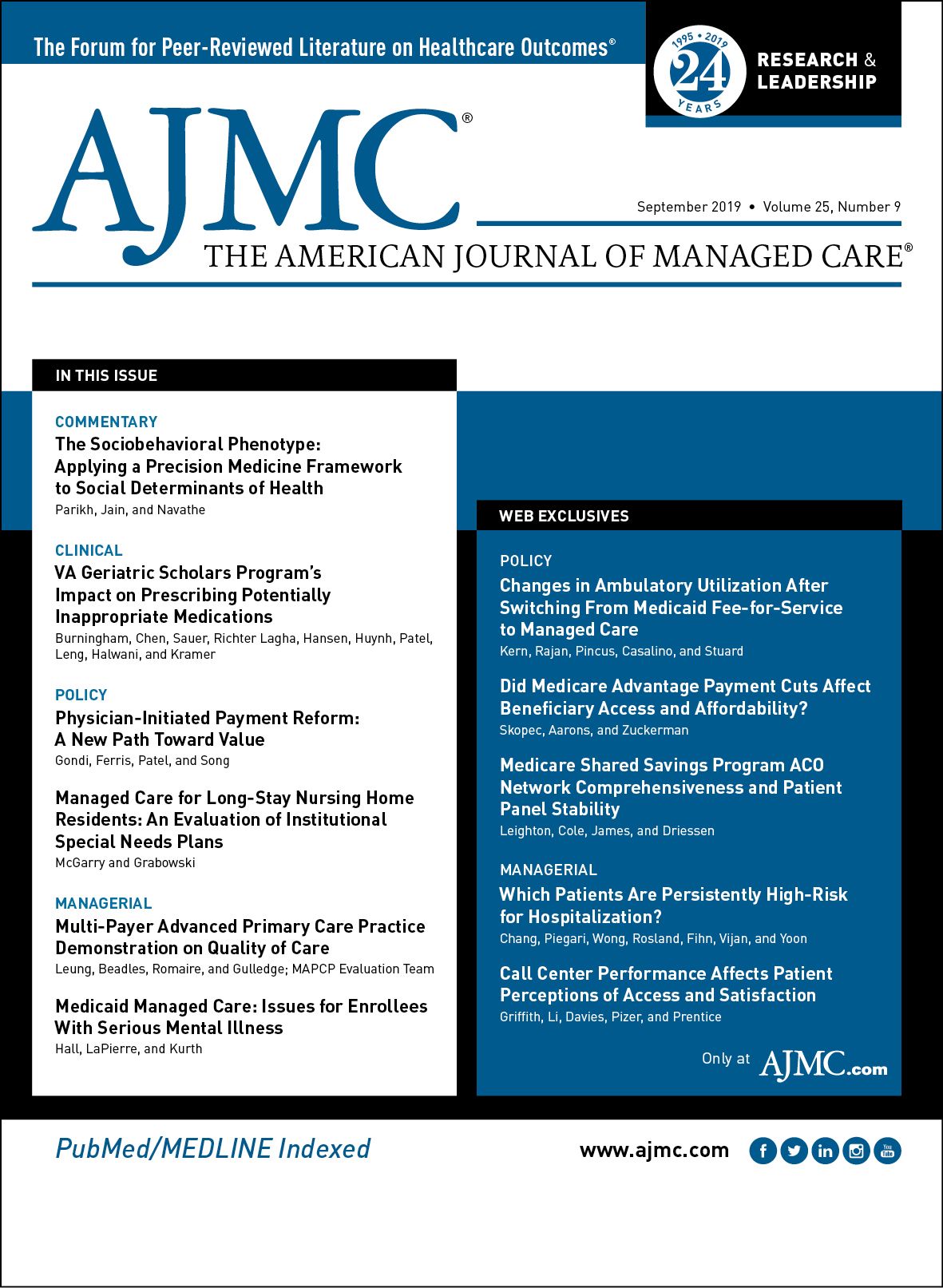- Center on Health Equity & Access
- Clinical
- Health Care Cost
- Health Care Delivery
- Insurance
- Policy
- Technology
- Value-Based Care
From the Editorial Board: Jan E. Berger, MD, MJ
Growing up in the 1960s, I watched a great deal of television. Two of my favorite shows were The Match Game and Marcus Welby, MD. Little did I know that these 2 television shows would form the basis for my future viewpoints in medicine.
I started my healthcare career as a practitioner in the early 1980s. At that time, education on patient care was based on what our predecessors had done, not unlike other professions that use an apprenticeship model. My professors and attendings practiced medicine like Marcus Welby did, using what knowledge they had about the patient and what had worked in the past for other patients. This is not to say that the education was not based on science—it was just that the science was collected and utilized in a fashion that was often less formal and more anecdotal. I would consider this the age of “provider preference—based medicine.”
Along came the age of evidence-based guidelines and care, when we began looking at patients as part of a population. This movement toward population health was very exciting to me, as treatment was based on what had worked best for a large portion of the population. It gave those of us practicing medicine a roadmap to quality care and brought us nearer to practicing high-quality care in a cost-effective manner. Some physicians pushed back on population health and evidence-based guidelines by calling the model “cookbook medicine,” but many others found the model to be logical, science based, and quality focused.
Over the next few years, the next generation of evidence-based medicine began forming: personalized medicine. Organizations began to divide populations into subgroups through predictive modeling, personas, and other segmenting methods. It seemed that interventions were no longer looking at populations as a whole but greater personalization within a population.
We are now entering the next level of care, that of precision medicine. Some speak of precision medicine in the realm of oncology. That is not what I am talking about. With mapping of the human genome completed in 2003, we began to understand the differences in each of us and how these differences can be translated into care at the patient level.
This does create a conundrum for our system. How do we begin to create systems that take evolving science and put it into our care algorithms at a more individualized level? How do we use this knowledge to answer the Match Game? How do we match the intervention of care to the right person? We are spending millions of dollars on the many modalities of identification and treatment but are not doing it with the precision that is now possible, creating unnecessary expense and suffering.
Is it the end of population health or just the beginning? I believe that precision medicine takes population health to the next level. They are 2 sides of the same coin. Population health is science-based care that works from the top down, looking at the population as a whole and then translating that care down to the individual level. Precision medicine begins at the subpopulation or individual level and then builds upward. Let’s take the personalization of care from Marcus Welby and combine it with the precision of the Match Game. This model would be a win for us all.

Building Trust: Public Priorities for Health Care AI Labeling
January 27th 2026A Michigan-based deliberative study found strong public support for patient-informed artificial intelligence (AI) labeling in health care, emphasizing transparency, privacy, equity, and safety to build trust.
Read More
Ambient AI Tool Adoption in US Hospitals and Associated Factors
January 27th 2026Nearly two-thirds of hospitals using Epic have adopted ambient artificial intelligence (AI), with higher uptake among larger, not-for-profit hospitals and those with higher workload and stronger financial performance.
Read More
Motivating and Enabling Factors Supporting Targeted Improvements to Hospital-SNF Transitions
January 26th 2026Skilled nursing facilities (SNFs) with a high volume of referred patients with Alzheimer disease and related dementias may work harder to manage care transitions with less availability of resources that enable high-quality handoffs.
Read More
Specialty and Operator Status Influence Electronic Health Record Use Variation
January 22nd 2026Operators demonstrated specialty-specific differences in electronic health record efficiency, timeliness, and after-hours use, highlighting how workflow and training shape documentation behaviors across medical disciplines.
Read More

